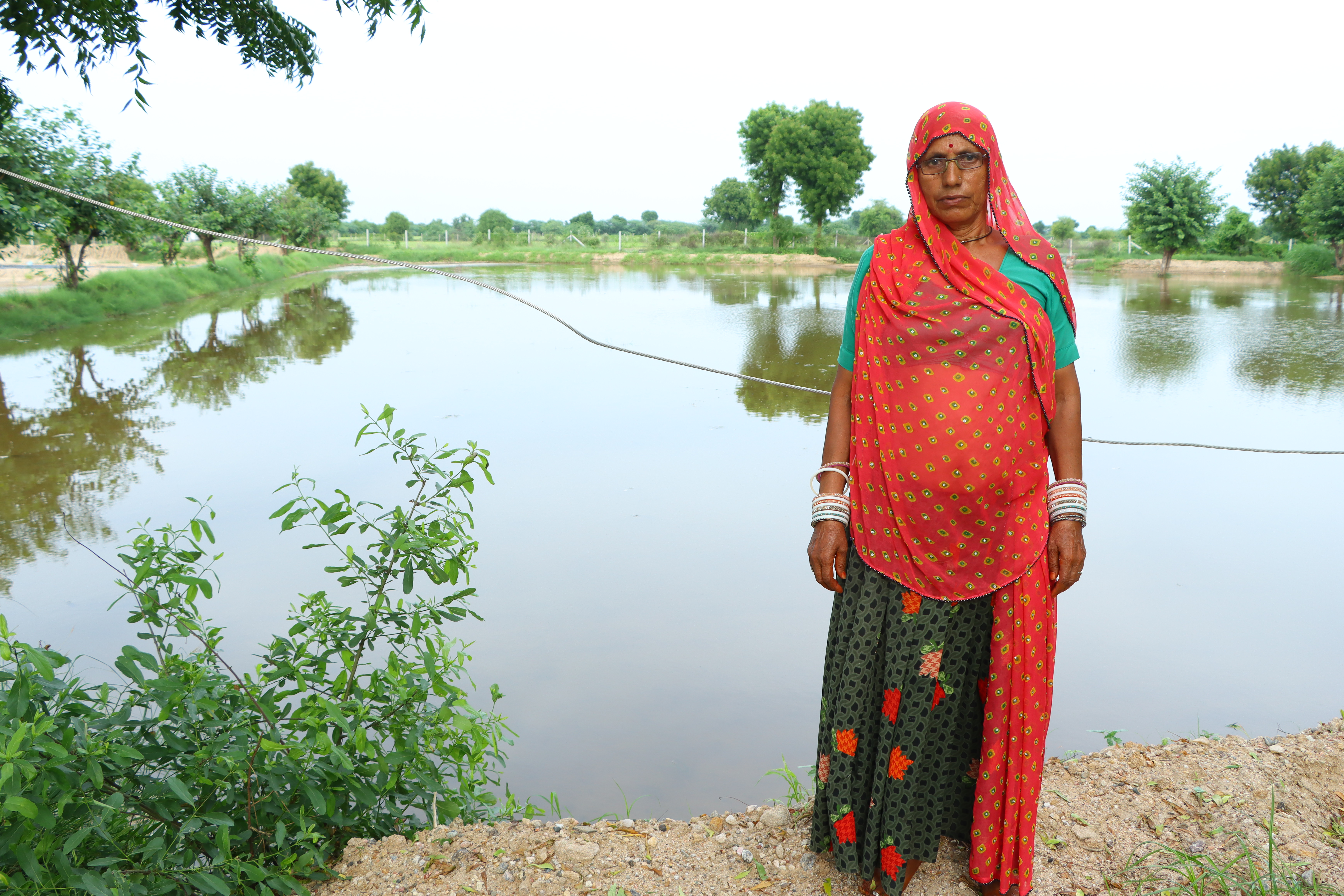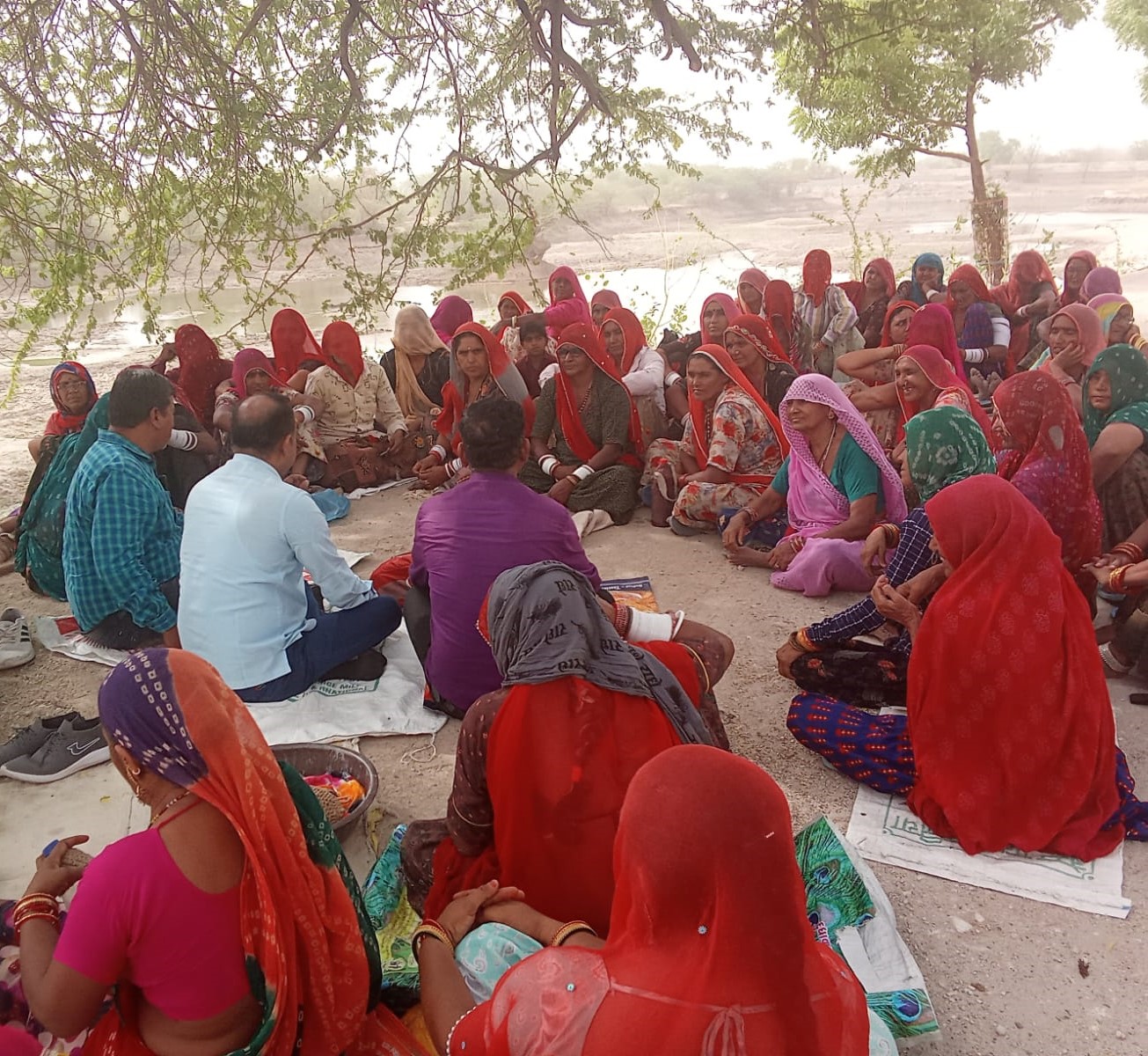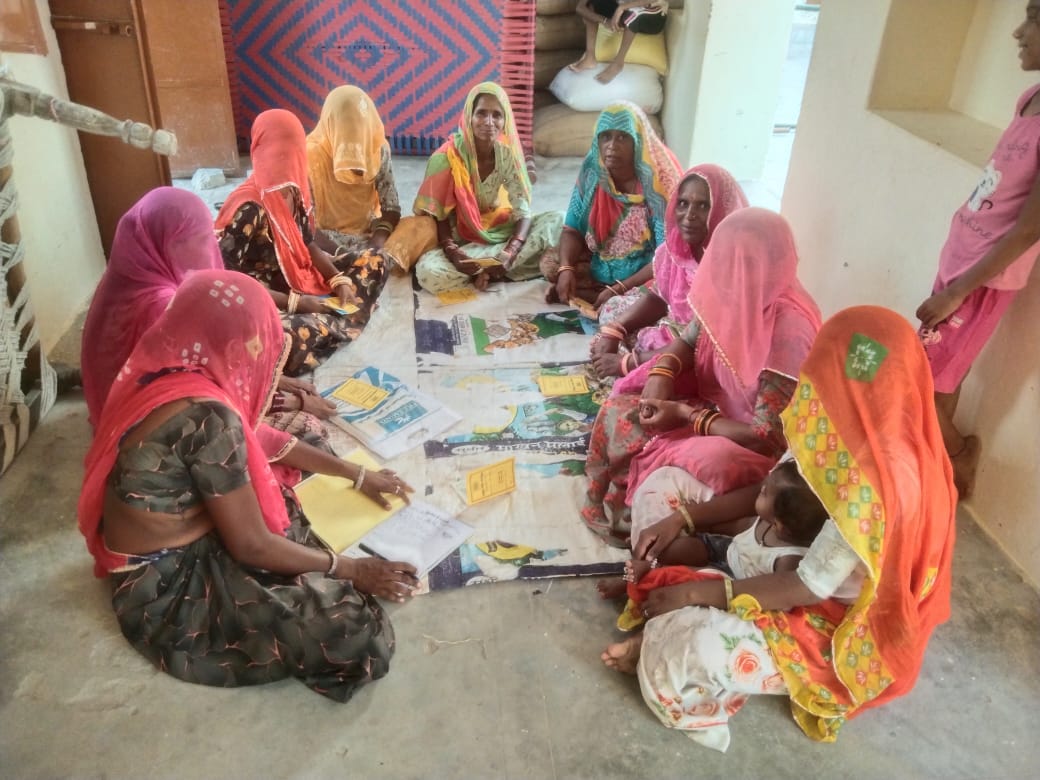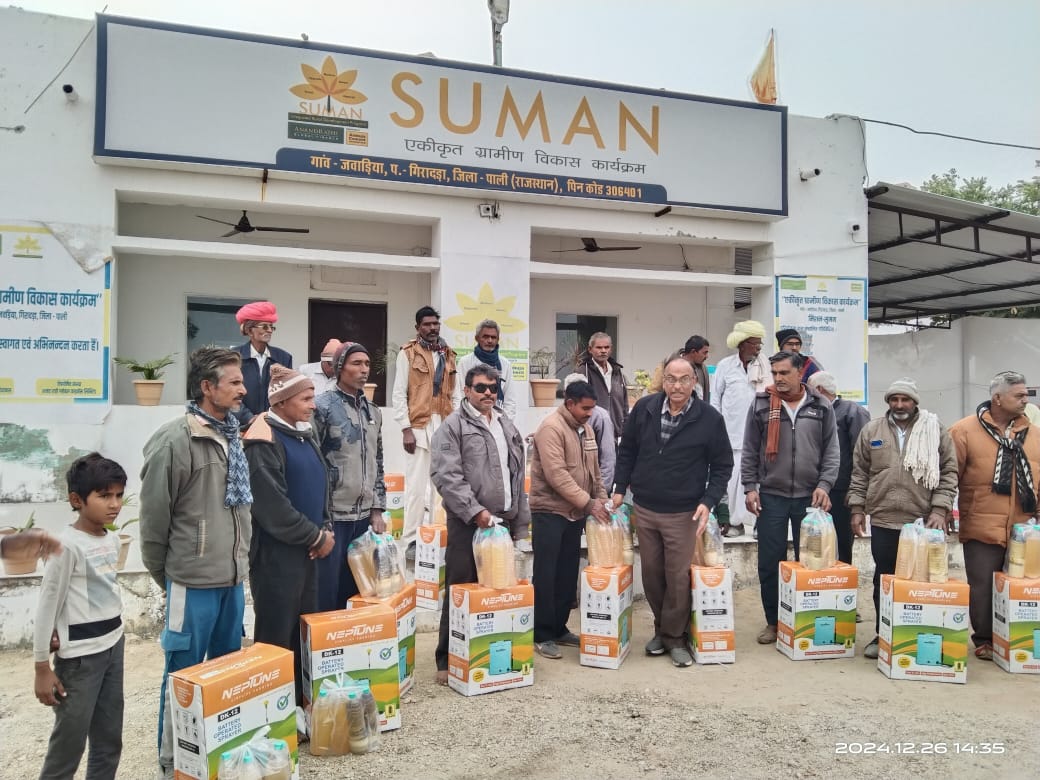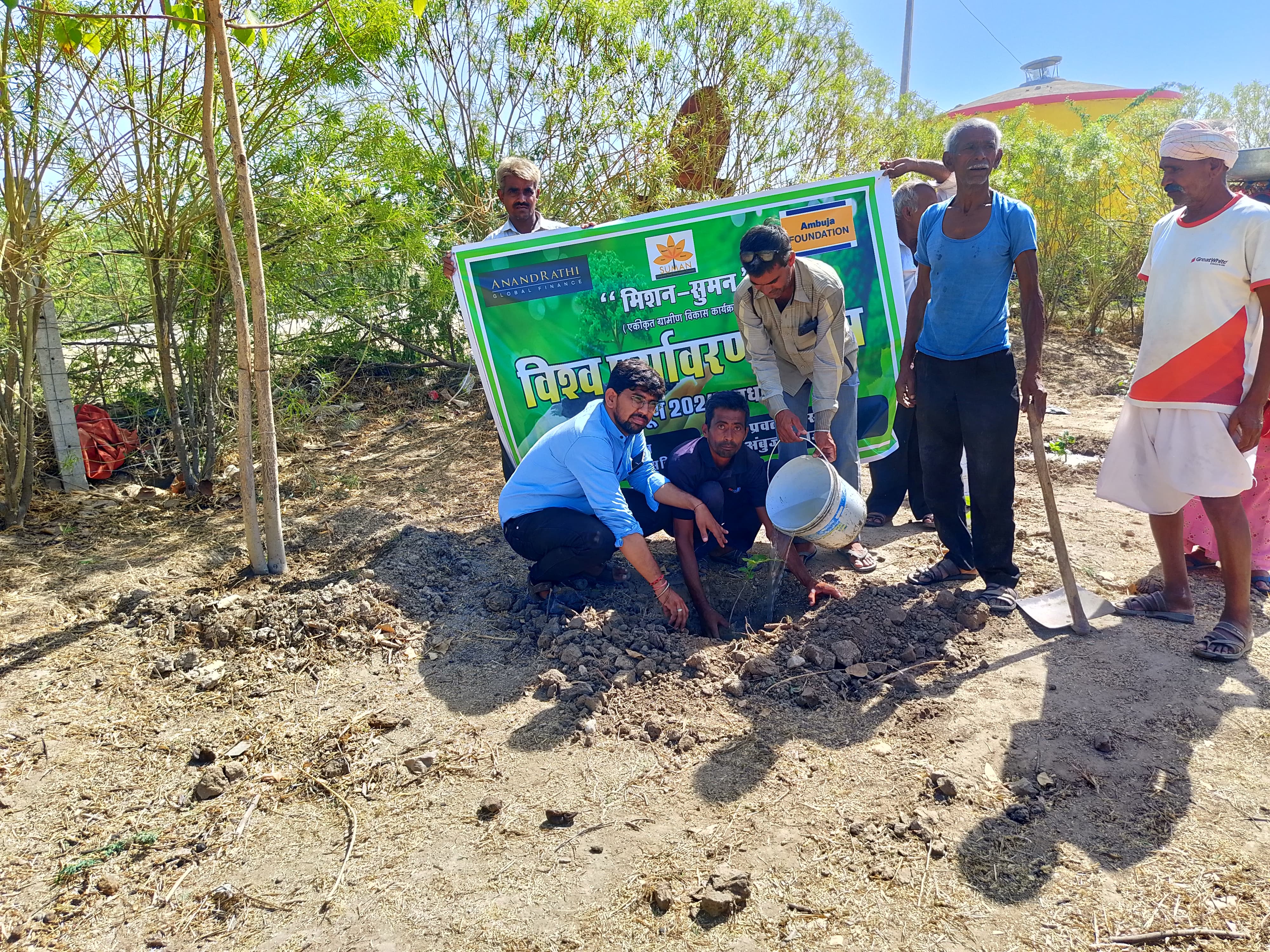A recent progress report of Project SUMAN (Smart Upgrade Modern, Aware Natural), implemented by Ambuja Foundation in collaboration with Anand Rathi Global Finance, highlighted significant impact across five villages in the Pali district of Rajasthan. Targeting the communities of Baldo Ki Dhani, Bhato Ki Dhani, Jawariya, Gulabpura, and Giradara, the project reached over 927 households, transforming the lives of more than 4,500 rural residents through a multi-pronged approach focused on agriculture, water security, skill development, and women’s empowerment.
Reviving Agriculture and Water Security
At the core of the project was a mission to revitalize degraded farmlands and combat chronic water scarcity. Soil testing of 100 farms revealed high pH levels and nutrient deficiencies, prompting the distribution of gypsum and organic inputs such as decomposers and Trichoderma to enhance fertility. Simultaneously, farmers received training on sustainable farming techniques and nutrient management, resulting in improved soil health and increased crop yields.
To combat irregular rainfall and declining groundwater levels, six farm ponds (6196m3) and 16 rooftop rainwater harvesting systems were constructed (adding over 236,000 liters of water storage capacity.) Sprinkler and drip irrigation systems installed across more than 43 hectares allowed for water-efficient agriculture, reducing water consumption by upto 50% and ensuring consistent irrigation even during dry spells.
Greener Energy, Lower Costs
Project SUMAN also promoted sustainable irrigation through solar-powered water pumps. By installing five solar pumps, the project drastically reduced farmers’ reliance on costly diesel engines and erratic electricity, cutting irrigation expenses and encouraging the use of renewable energy. This shift has not only improved water access but also fostered climate-friendly agriculture.
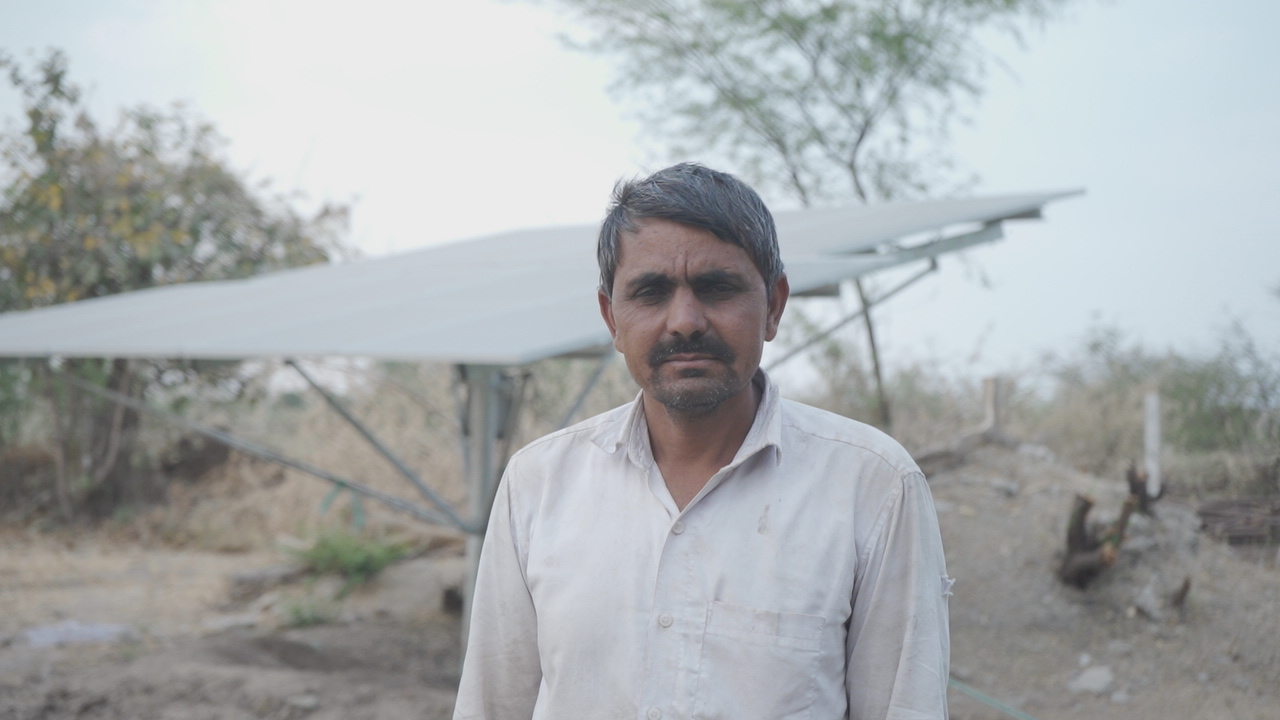
Boosting Livelihoods through Livestock and Skills
In a region where livestock is a key livelihood source, the project ran 28 animal health camps, benefiting 910 farmers and treating over 25,000 animals. These interventions addressed recurring diseases, improved nutrition, and raised awareness of preventive veterinary care—leading to healthier livestock, increased milk production, and reduced mortality rates.
Youth in the region, often plagued by unemployment, found new opportunities through the Mission SUMAN skill training initiative. Focused on security guard training, the program enrolled 19 rural youth, 14 of whom were successfully placed in reputed organizations. The project is now set to extend, with a new SEDI centre to be started in Jodhpur in collaboration with Anand Rathi IT Private Limited, aiming to reach and empower more youth in the region.
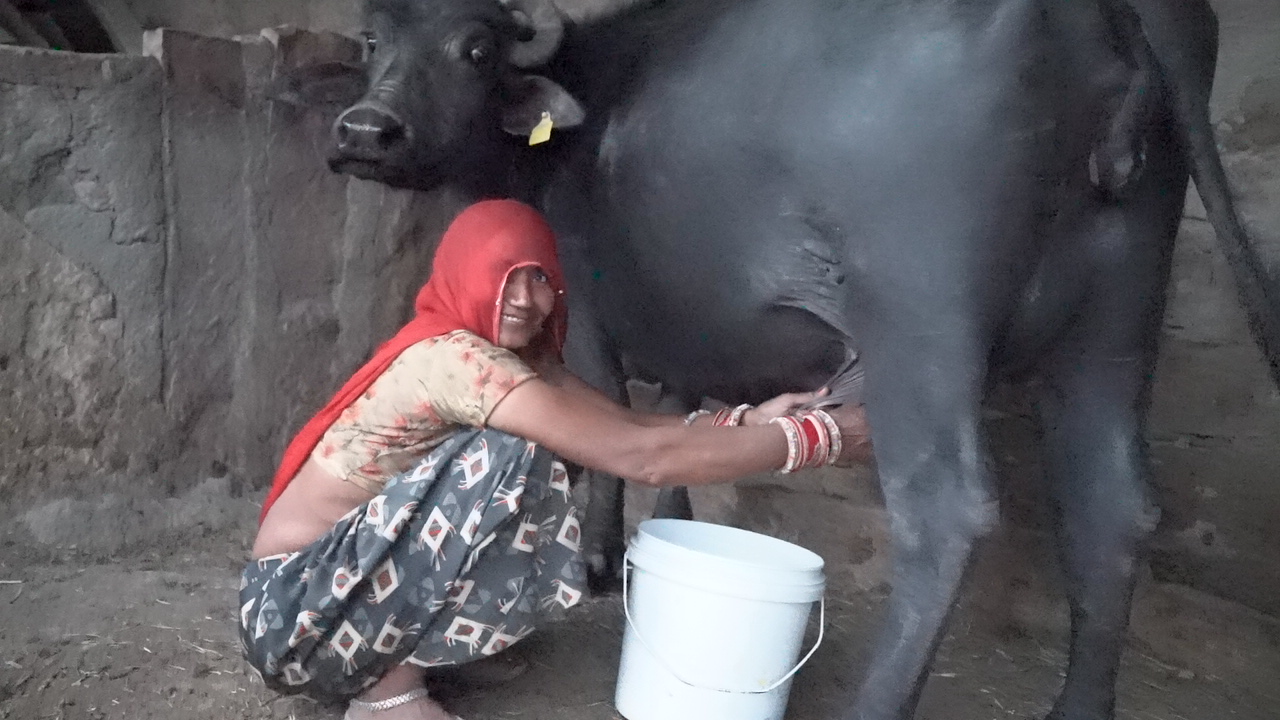
Empowering Women Through Collective Action
Project SUMAN made powerful strides in women’s empowerment by reviving five Self-Help Groups (SHGs) involving 60 women. These groups are now financially active, saving regularly, and preparing to launch a mustard oil production unit—an enterprise poised to offer sustainable income and strengthen women’s financial independence. Trainings on financial literacy and SHG management were also conducted in collaboration with the National Rural Livelihood Mission (NRLM).
Enabling Access to Government Support
One of the standout achievements of the project was its success in connecting rural families to government schemes. Through sustained outreach and support, over 378 families accessed essential benefits under schemes such as PM-Kisan, Janani Suraksha Yojana, and Ujjwala Yojana, unlocking Rs. 97.55 lakh in financial and social security support.
Conclusion
The progress report of Project SUMAN clearly underscores its success as a model for integrated rural development. By addressing the intersecting challenges of water scarcity, poor agricultural productivity, lack of employment, and gender inequality, Ambuja Foundation has created a roadmap for sustainable growth, resilience, and rural empowerment. As the project continues, its scalable interventions offer immense potential for replication in other drought-prone and underserved regions across India.


